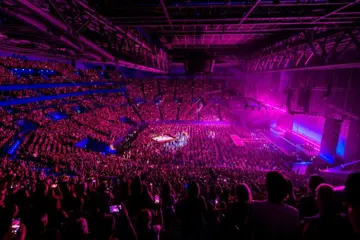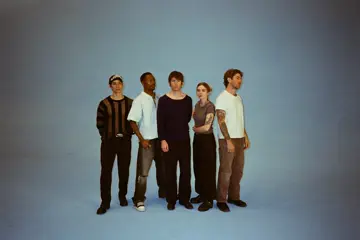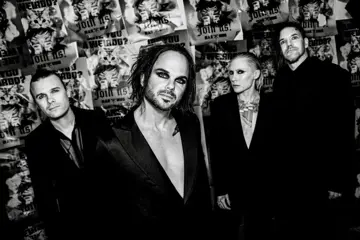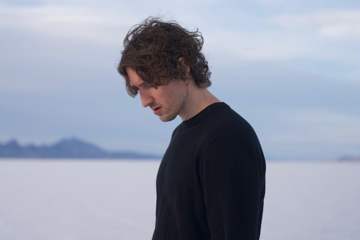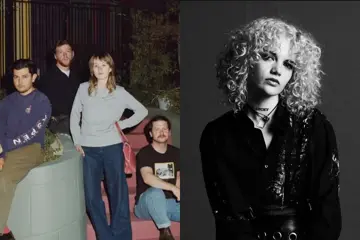The full program for the Sydney Film Festival has been revealed and we've got the lowdown on some of the films, plus their trailers for you.
The festival kicks off on Wednesday 5 June with Mystery Road, the brainchild of Australian Indigenous filmmaker Ivan Sen. SFF will run until Sunday 16 June. Head here for the full program and ticket details.
Film Carew has broken-down his picks in today's announce to get you prepared for one of Sydney's most loved events. And his prediction: keep Richard Linklater's Before Midnight and Ulrich Seidl's Paradise in the back of your mind - these two flicks have generated plenty of buzz and are apart of two notable indie-movie trilogies.
Now let's grab some popcorn shall we?
OFFICIAL COMPETITION
The Act Of Killing (Denmark/Indonesia, director Joshua Oppenheimer)
Not sure if there's a gambling line on the contenders for the Sydney Film Prize, but, if I were to lay a wager on a winner - a film to follow such masterworks as Steve McQueen's Hunger and Asghar Farhadi's A Separation as prizewinner - then Oppenheimer's seems a sweet bet. His film isn't just a piece of documentary cinema, but a film about documentary cinema; about what it means to point a camera at something and call it truth. It's, beyond that, about cinephilia, storytelling, folklore, mythmaking, propaganda, bloodshed, cruelty, grief, guilt, forgiveness. It's a film about how celluloid captures man's fathomless darkness, yet the light that shines through it illuminates man's endless optimism.
Only God Forgives (Denmark/Thailand, Nicolas Winding Refn)
Winding Refn and meme-tastic beefcake Ryan 'guy from Dead Man's Bones' Gosling reunite in Bangkok, for a (no doubt highly-stylised) picture whose hook sells itself: Gosling dukes it out with a corrupt local cop in a boxing match staged as a form of kangaroo-court justice.
Wadjda (Saudi Arabia, Haifaa Al Mansour)
Don't miss a beat with our FREE daily newsletter
Al-Mansour's debut film is a profound piece of cultural transgression heaving with human-rights issues: a film about a young girl made in Saudi Arabia, where cinema is effectively forbidden and the lives of women are so often yoked servitude. Peering behind the country's royal curtain, Wadjda delivers a story - a girl wants to buy a bicycle - that carries the classic simplicity of Iranian cinematic parable.
AUSTRALIAN DOCUMENTARY PRIZE
Audrey Of The Alps (Australia/France, Grace McKenzie)
In a sure sign of the documentary's place in the global dialogue - and, so often, exploring the currents of globalisation - the films in the Australian documentary section are determinedly international. Like McKenzie's film, which is an observationist portrait of a French girl learning to heard sheep high in the Pyranees.
SPECIAL PRESENTATIONS
Blancanieves (Spain, Pablo Berger)
Berger's film has slowly been garnering a reputation as a superior take on the same terrain as The Artist; its film-length homage to the days of early, silent cinema not going in for cheap Hollywood nostalgia, but out to create its own realm of dreams.
Frances Ha (USA, Noah Baumbach)
Noah Baumbach. All-time mumblecore pin-up Greta Gerwig. Girls oddball beefcake Adam Driver. I'm so there.
The Look Of Love (UK, Michael Winterbottom)
Whilst there's plenty of Scorsese clichés and costly pop-song placements marking Winterbottom's portrait of 20th-century soft-porn empresario Paul Raymond as matinée fluff, Steve Coogan's performance as the fatally-flawed subject is perhaps the finest of his career; capturing the tragic depth behind the flamboyant façade with a sense of unexpected subtlety and quiet gravity.
Mood Indigo (France, Michel Gondry)
After dabbling in documentary-making and Hollywood cheque-cashing, Gondry is back in Gondryist form with his adaptation of Boris Vivan's novel Froth On The Daydream; a novel long beloved but long considered unadaptable. Its high-fantasy and surrealist whimsy seem like perfect sources of inspiration for one of cinema's most inventive visualists, and Romain Duris and Audrey Tatou as the tragic central couple feel like the director's staying oh-so-true to his muse.
The Past (France, Asghar Farhadi)
A Separation took Farhadi from Tehran unto the world-at-large, his Oscar-winner turn turning him into one of world cinema's breakout auteurs, hailed from hither to yon as master of the moral quandary. His first film made in France - with Bérénice Béjo and Tahar Rahim starring - will show in Sydney mere weeks after premiering in Cannes, making it won of SIFF's most enticing tickets.
Prince Avalanche (USA, David Gordon Green)
Few filmmakers - save, perhaps, Francis Ford Coppola - can boast the extremes of Green's filmography, which goes from idiosyncratic auteurism (George Washington) to detestable Hollywood crap (Your Highness). Prince Avalanche promises something more small and personal, with its slowly-bonding-council-workers set-up reminding me of Tom Gilroy's little-scene and long-forgotten Spring Forward.
BEFORE TRILOGY
Before Midnight (USA, Richard Linklater)
The previous chapters in Linklater's collaborations with Ethan Hawke and Julie Delpy -1995's Before Sunrise and 2004's Before Sunset - have been two of cinema's great-ever romances; thrilling conversation-pieces that touch on the experience of being human, and connecting to another human, in unspeakably profound ways. That's more than recommendation to be insanely excited about their new third film.
FEATURES
Beyond The Hills (Romania, Cristian Mungiu)
Though it doesn't measure up to the mastery of Mungiu's prior picture - 4 Months, 3 Weeks, 2 Days - Beyond The Hills is a slow-burning, claustrophobic, caustic portrayal of religious superstition that will thrill any cinephile.
Camille Claudel 1915 (France, Bruno Dumont)
The tragical life of the French sculptor was once brought to screen in generic biopic ways - with Isabelle Adjani and Gérard Depardieu in the '80s - but there's no doubting Dumont, one of cinema's most ascetic, astringent austere auteurs will have something far more provocative, brutal, and cruel in mind for leading lady Juliette Binoche.
Computer Chess (USA, Andrew Bujalski)
Like Pablo Larraín's No, the latest film from mumblecore maestro Andrew Bujalski evokes the '80s by shooting on archaic VHS 'technology'; the wobbly video-lines adding authenticity to a drama concerned with the extreme nerdery of coding.
The East (USA, Zal Batmanglij)
The brother-of-the-dude-from-Vampire-Weekend proved his cinematic chops with the eerie Sound Of My Voice, and now his second film guns for 'next level' status by building a corporate thriller around activists and the intelligence agents trailing them. It reunites him with Brit Marling, and also stars Alexander Skarsgård and Ellen Page.
Ginger & Rosa (UK, Sally Potter)
Potter's soap-operatic portrait of best gal-pals coming of nihilist age against the nuclear terror of Cold War '60s Britain features famous faces across its cast (including, Mad Men nerds, Christina Hendricks playing piano accordion oncemore). But it's owned by its lead, Elle Fanning, who submits an unendingly-profound performance, further clawing her way out of the dank shadows of sibling-trailing childstardom, now just one of America's most amazing young actors.
A Hijacking (Denmark, Tobias Lindholm)
This tense Danish drama depicts a crew of sailors on a cargo ship taken hostage by Somali pirates, achieving a stark, symbolic contrast by setting scenes in the sweaty galley against those at corporate HQ back home; where dealing with blackmail is just another business-deal negotiation.
Upstream Color (USA, Shane Carruth)
The long-awaited follow-up to Primer has already become one of the best-reviewed films of the year; its heightened cinematic 'vision' furthering Carruth's claim as one of American indie cinema's most interesting new voices. The good oil from film nerds I trust is that if you love it, you'll love it desperately, deeply, profoundly.
Vic + Flo Saw A Bear (Canada, Denis Côté)
Côté has earnt his stripes as one of world cinema's quirkiest auteurs with a run of both documentaries (Bestiaire), features (Curling), and the indefinably in-the-middle (Carcasses). The gloriously-titled Vic + Flo Saw A Bear comes direct from Berlin, with promises of it being Côté's most accessible film yet.
What Maisie Knew (USA, Scott McGehee/David Siegel)
McGehee and Siegel's Suture glory days are nigh on two decades ago, but the filmmakers have, even since, made a host of pictures that don't seek easy dramatic answers. Their latest finds Julianne Moore and Steve Coogan as rival sides in a custody case; but the story's scene through the eyes of the daughter they're fighting over.
White Elephant (Argentina, Pablo Trapero)
The Carancho crew - writer/director Trapero, stars Martina Gusmán and Ricardo Darín - reunite in a gritty flick that finds Darín and Jérémie Renier playing priests out to transform a rough-and-tumble Buenos Aires slum in the '70s. Trapero takes a big-picture view of their dreams: with politicians, church officials, crime cartels, and crooked cops all having their own stake in the violent, vengeance-scarred, dog-riddled 'hood.
INTERNATIONAL DOCUMENTARIES
Blackfish (USA, Gabriela Cowperthwaite)
Rust & Bone aroused interest in captive Orcas acting the part of Killer Whales. And whilst it may lack digitally-excised celebrity gams, this American documentary instead mounts an investigation into the industry of Marine-park shows, and the treatment of whales in captivity.
Dirty Wars (USA, Richard Rowley)
Rowley's film is a virtuoso condemnation of the mercenary culture of private defence contractors and covert foreign operations; Dirty Wards shining a light on the dark, hidden, shameful secrets of American military might.
Downloaded (USA, Alex Winter)
The grand global success of The Social Network showed that audiences are eager to cinematically witness history they've just lived through, and Winter's documentary is a chronicle of trailblazing filesharing platform Napster, which announced the arrival of the 21st century, detonated the music industry, and ushered in the new online epoch.
The Human Scale (Denmark, Andreas Dalsgaard)
The latest in a recent run of documentaries about urban planning, Dalsgaard's stands out for the breadth of its vision; chronicling a host of cities both brilliantly functional (Copenhagen) and struggling to adapt (Dhaka). Of most local interest is its survey of Melbourne's long-standing approach to urban renewel, and the blank canvas afforded to those planning on rebuilding Christchurch's completely-razed city.
I Am Divine (USA, Jeffrey Schwartz)
John Waters' muse has long been a pin-up for those drawn to the queerest fringes of queer culture. This documentary is out to explore the man - the boy, really - behind the iconic screen queen.
The Machine Which Makes Everything Disappear (Georgia, Tinatin Gurchiani)
Awful televised karaoke contests have turned the open-casting session into nasty exercises in callow schadenfreude. But Gurchiani's portrait of Georgian villagers - their aspirations, their daydreams, their love of cinema - is more in keeping with Mohsen Makhmalbaf's classic Salaam Cinema.
The Spirit Of '45 (UK, Ken Loach)
One of cinema's great rabble-rousers, Red Ken helms a portrait of post-war Britain, which looks at it —with a tone both nostalgic and lamenting - as England's greatest moment of cultural, people-powered optimism.
William And The Windmill (USA/Malawi, Ben Nabors)
When William Kamkwamba was 14, he built a windmill form scrap parts, provided power to his remote, rural village in Malawi. The story become 'inspirational' fodder for the Western media, with Kamkwamba whisked away to America to start a whole knew life. Nabors' fascinating documentary captures the unsure life of a boy coming-of-age torn between two worlds, comfortable in neither.
SOUNDS ON SCREEN
Death Metal Angola (USA/Angola, Jeremy Xido)
At an orphanage in Central Angola, a crew of kids scarred by the civil war discover the rehabilitative powers of double-kick drumming and turned-up-to-11 trashing.
Mistaken For Strangers (USA, Tom Berninger)
The National - a band readying an impressive forthcoming LP, Trouble Will Find Me - have always had an interesting dynamic: singer Matt Berninger and his mumbly baritone flanked by two pairs of brothers. Touring High Violet, he invited his own brother, Tom, on the road; and the result is anything but your regular rockumentary, instead a portrait of a band as confluence of squabbling siblings.
THE BOX SET
Penance (Japan, Kiyoshi Kurosawa)
A programming strain of TV-as-art makes plentiful sense in the Golden Age of Television, but it's hard fitting a run of episodes into a film festival's always-tight schedule. Of the two series, clearly the highlight is Penance, Kurosawa (the stylist behind Bright Future) moving on from the epic Tokyo Sonata to an even boroader sprawl: a five-episode series.
FOCUS ON AUSTRIA
Michael H. Profession: Director (Austria/France, Yves Montmayeur)
Everyone's favourite asshole auteur is the subject of this documentary; the most famous figure of Austrian cinema holding court on an artform he once dubbed “24 lies per second.” Haneke's greatness is as much a product of ideological and intellectual rigour as it is cinematic exactitude, making him a natural for holding court on the art of the screen, on screen.
Museum Hours (Austria/USA, Jem Cohen)
Though best-known for his collaborations with indie-rock figures like Fugazi, The Ex, and Vic Chesnutt, American daydreamer Jem Cohen also makes art-movies surveying foreign cities and figures lost amidst the landscapes of modern metropolises. Both these strains are at play in Museum Hours, a tale of two humans bumping into each other in Vienna; the foregrounding of the city a reason why it's here amidst more Austrian Austrian pictures.
Paradise Trilogy (Austria, Ulrich Seidl)
The Focus On Austria section rather seems like an excuse to show Seidl's much-lauded trilogy together. A bleak survey of grim humanity tinged with dark misanthropy, Paradise finds Seidl pushing his harsh tragic/ironic 'vision' of the ugliness of mankind to an extreme, emboldened by the broader canvas.


